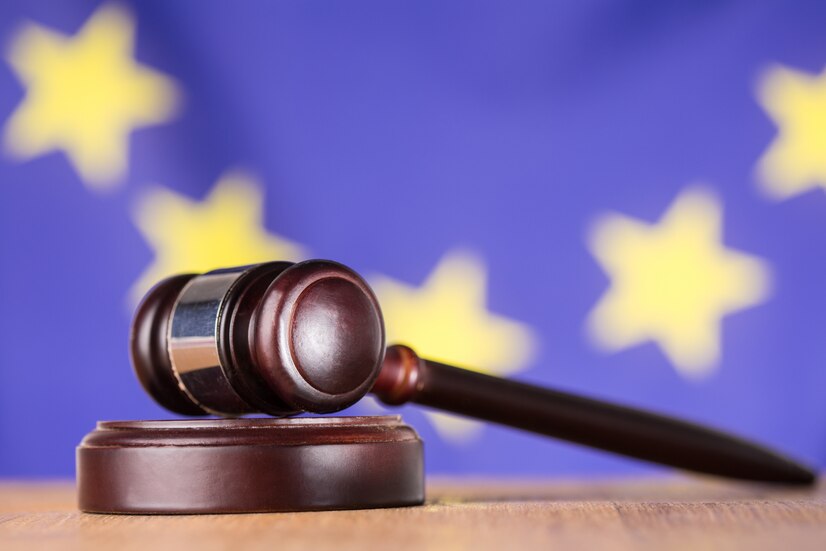The working paper ‘Economic governance and the rule of law in the EU’ is written within the framework of the Horizon-funded research programme Respond to Emerging Dissensus: SuPranational Instruments and Norms of European democracy (RED-SPINEL).
EXECUTIVE SUMMARY
The Rule of Law (RoL) is among the fundamental values upon which the European Union (EU) is built. Breaches of the RoL by EU Member States – for example, related to judicial partiality, corruption and misuse of EU funds – not only affect the Union’s credibility as a community of values, they also pose a direct risk to the functioning of the single market and the Union’s overall financial interests. For that reason, the EU sets strict RoL conditions for candidate countries before being able to join. Yet, it is difficult to contain Member States that are gradually backsliding on the RoL once they have joined.
The EU’s rule of law toolbox
Until recently, the EU had only few effective instruments to keep Member States on track in terms of the RoL. Article 7 of the Treaty on European Union (hereafter Article 7 TEU) provides for a procedure to suspend certain rights from a Member State in case of RoL breaches, but this proves too difficult to effectively trigger due to the unanimity requirement in the European Council. In addition, the infringement procedure under Articles 258, 259 and 260 of the Treaty on the Functioning of the European Union (TFEU) provides for the monitoring and sanctioning of breaches of the entire body of EU law, also those related to the RoL. However, in practice, this procedure is not used to address structural RoL breaches. The EU’s RoL toolbox also includes monitoring instruments, including the EU Justice Scoreboard and the Annual RoL Reports, by which the RoL performance of all Member States is monitored. The instruments rely on dialogue and non-binding recommendations, and are not seen as overly effective instruments to enforce change.
Therefore, the EU introduced new instruments. Notably since the beginning of the current Multi-Financial Framework (MFF) (which runs from 2021 to 2027), the Union is increasingly relying on budgetary instruments to enforce the RoL in its Member States. Through these instruments – known as i) the Common Provisions Regulation (CPR), ii) the RoL conditionality regulation, and iii) the Recovery and Resilience Facility (RRF) that was created in reaction to the COVID-19 pandemic – the obtaining of funds is being made conditional on Member States’ adherence to the RoL and democratic values (including respect for fundamental rights).
The Common Provisions Regulation
Under the Common Provisions Regulation, which was introduced with the 2021-2027 MFF, the obtaining of EU Structural Funds depends on whether the country fulfils so-called ‘horizontal enabling conditions’, including the adherence to the EU Charter of Fundamental Rights. In case of discrimination, breaches of the principle of judicial independence and/or fraud, the Commission can decide to not reimburse costs or to suspend the approval of a specific programme. Under this regulation, funds have been suspended for both Hungary and Poland due to non-adherence to these conditions. In Poland, the current Donald Tusk government has committed itself to restoring the rule of law, on which basis these funds have now been unfrozen. In December 2023, the Commission decided to unfreeze part of Hungarian cohesion funds, due to announced reforms related to judicial independence.
RoL Conditionality Regulation
Under the RoL Conditionality Regulation, effective since 2020, the Commission can withhold payments from any EU funds, reduce pre-financing, and prohibit a Member State from entering legal obligations. It applies to breaches that affect the financial management of the EU, such as violations of the principle of judicial independence and corruption. The Conditionality Regulation partly overlaps with the CPR, but specifically addresses breaches that affect the EU budget (i.e. corruption). The Regulation has only been triggered against Hungary.
The Recovery and Resilience Facility Regulation
The RRF was introduced as a reaction to the COVID-19 pandemic and the economic downturn that it caused. The distribution of RFF-funds is conditional on a series of country-specific milestones and targets – also related to the RoL – outlined in Member States’ National Recovery and Resilience Plans (NRRPs). RoL-related milestones and targets relate to the independence and effectiveness of the judiciary, the strengthening of anti-fraud and anti-corruption policies, and the tackling of money laundering. For both Hungary and Poland, super-milestones were set – related to the RoL and to the improvement of their national control and audit systems. These super-milestones should be met in order to receive the first RRF payment. The new Polish Tusk government had filed the first payment request, which was approved by the Commission in April 2024. At the time of writing, Hungary has not filed a payment request.
The use of the instruments for budgetary conditionality – i.e. the CPR, the Conditionality Regulation and the RRF – has become key to placing rule of law concerns at the top of national political agendas without having to use the more complex and nuclear Article 7 TEU procedure.
The effectiveness of RoL conditionality
The novelty of these instruments makes it impossible to assess their long-term effectiveness. Following several evaluations, notably by the European Court of Auditors (ECA), there is some evidence that budget suspensions have been effective in protecting the EU’s financial interests, and have been effectuating change in targeted countries, notably Poland and, to a lesser extent, Hungary. Nevertheless, it is too early to fully assess the long-term impact of conditionality on the RoL in Member States. In the coming period – and preferably prior to the adoption of the new MFF – it will it crucial to examine whether the reforms as announced by targeted countries to reclaim funds, are not just reforms on paper.
Examining long-term effects of budgetary conditionality is important given current EU (treaty and budget) reform debates. Because of future EU enlargement, proposals have been developed for extending and reforming the RoL toolbox. Yet, rather than extending the scope of current instruments, it could be more viable to await analyses on the longer-term effects, and to provide the procedural conditions for a more effective use of the current instruments. Moreover, it is crucial to examine the impact of recent decisions to unblock funds in light of other political aims – such as the prevention of vetoes. Since it is not overall clear which instruments are used under which conditions, the instruments are sensitive to political manoeuvre, which ultimately affects their effectiveness.
The democratic legitimacy of rule of law conditionality
Budgetary conditionality marks an important deviation from the EU’s traditional mode of enforcement through voluntary compliance and court proceedings. As such, questions arise as to the (democratic) procedures by which the instruments are used. Although the RoL framework derives its strength and legitimacy from its technocratic nature, it is also precisely this element that encounters opposition. Critics point to the guidelines of the RoL Conditionality Regulation, which, allegedly, provide too much room for (political) interpretation. In addition, a lack of clarity and transparency in decisions (and non-decisions) on budgetary conditionality, comes at the expense of democratic scrutinization by the EP.
Finally, conditionality has broader political consequences. It has led to resistance especially from the countries against whom they were triggered. In a community of values, adherence to the RoL and fundamental rights is non-negotiable; it is crucial for the political and economic stability within the Union, and for guaranteeing mutual trust between Member States, between citizens and their governments and between citizens themselves. At the same time, the organisation of the judiciary and democratic polity is essentially a matter of national sovereignty on which the EU only has limited competencies. For that reason, EU institutions must act with care when applying the RoL framework, since ambiguity could well undermine the very values on which the Union is built.
About the Author:
Saskia Hollander is a Senior Research Fellow at the EU & Global Affairs Unit at Clingendael. Her research revolves mainly around EU governance, enlargement & reform, and the EU’s rule of law instruments.


